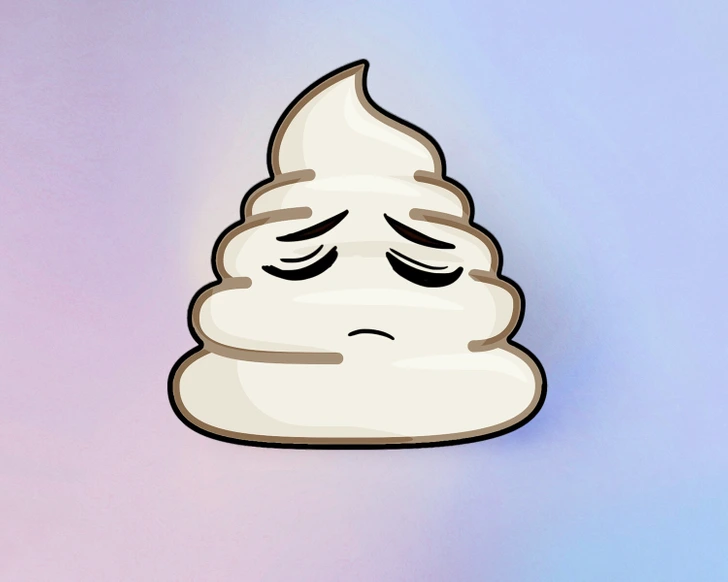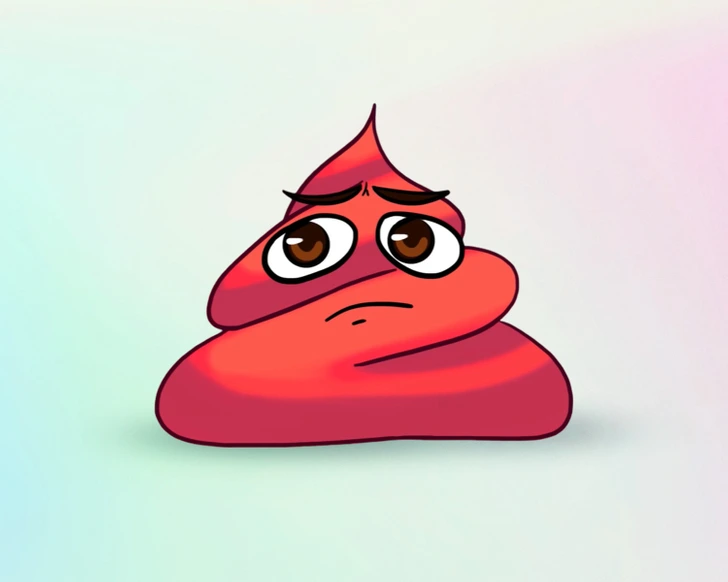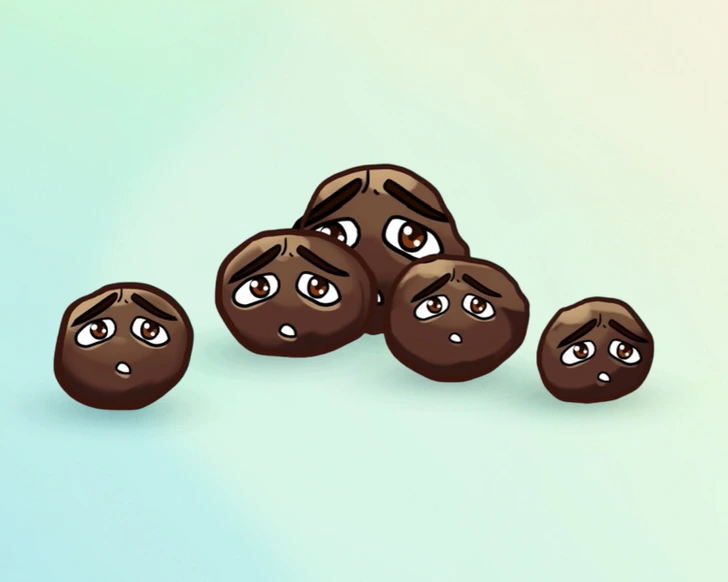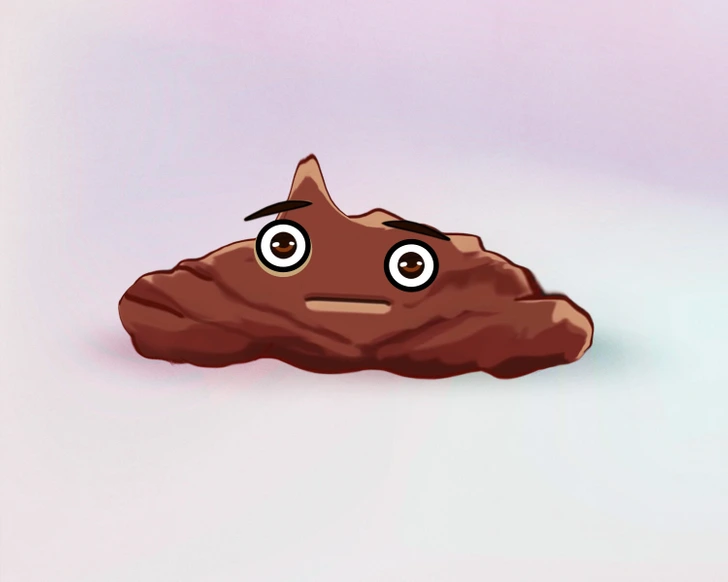Prioritizing good health means paying attention to our bodies’ subtle signals. One of the most overlooked indicators of well-being is stool, a topic many prefer to ignore. However, understanding what it reveals about our health can make a significant difference, and today, we’re diving into why it deserves more attention.
Healthy Poop: What Does Normal Look Like?

To understand what your stool indicates about your health, we should first recognize what a normal stool looks like. Healthy poop should be:
- Brown in color: This indicates proper digestion and bile processing.
- Well-formed and moist: It should resemble a smooth, sausage-like shape.
- Consistent and mild in odor: An unpleasant smell can signal a digestive issue.
Video:12 Things Your Stool Says About Your Health
If your stool consistently matches this description, your digestive system is likely functioning well. But what if it doesn’t? Let’s explore some concerning signs that might warrant a closer look.
Green Poop: When Your Stool Takes on a Hulk Hue

Seeing green in your stool can be unsettling, but it’s not always a cause for alarm. The most common reasons for green stool include:
- Dietary Choices: Eating green vegetables like kale, spinach, or broccoli can cause a greenish tint.
- Medications: Some antibiotics may alter gut bacteria, leading to green stool.
- Infections: Bacterial or viral infections can speed up digestion, causing bile to remain unabsorbed, giving the stool a green color.
If you’re consistently seeing green poop without an obvious dietary link, it’s best to consult a healthcare professional to rule out infections or digestive disorders.
Black Poop: A Dark Sign of Possible Trouble

Finding black stool can be alarming, but sometimes the cause is harmless:
- Iron Supplements: These can darken your stool significantly.
- Diet: Consuming foods like beetroot or black licorice can also result in a dark hue.
However, black stool with a foul odor might indicate:
- Bleeding in the upper gastrointestinal tract (like the stomach or esophagus).
- Peptic ulcers or gastritis: Inflammation can cause bleeding.
- Colon polyps: These can sometimes lead to dark stools.
If you notice persistent black stool, especially with pain or discomfort, seek medical advice immediately. Early detection can make a crucial difference.
White or Clay-Colored Poop: A Sign of Bile Issues

Stool that appears white or clay-colored may indicate a serious health problem. This color change often signals:
- Liver Issues: Conditions like hepatitis or cirrhosis can reduce bile production.
- Bile Duct Obstruction: This prevents bile from reaching the small intestine, leading to pale stools.
- Certain Medications: Some antacids and barium used in imaging can also cause this change.
Since bile gives stool its typical brown color, the absence of it is a red flag. If you see white stools, consult your doctor immediately for further evaluation.
Yellow Poop: Why Fat Malabsorption Matters

Yellow stool can hint at problems with fat digestion. Here are some common reasons:
- High-Fat Diet: Consuming excessive greasy foods can lead to pale yellow stools.
- Liver or Gallbladder Issues: These organs play a crucial role in bile production.
- Pancreatic Disorders: The pancreas helps digest fats, and its dysfunction can cause yellow poop.
- Celiac Disease: Gluten intolerance can impair fat absorption, leading to yellow, foul-smelling stool.
If you consistently notice yellow stools, it may indicate a chronic issue with fat absorption or liver function.
Red Poop: When Blood Might Be the Culprit

Red stool can be startling, but not all causes are severe:
- Dietary Causes: Eating beets or foods with red dye can result in reddish stools.
- Hemorrhoids or Anal Fissures: Bright red blood on the stool surface usually points to these.
- Lower GI Bleeding: If stool is dark red or contains clots, it might indicate bleeding from the intestines or colon.
If red stool persists without dietary explanation or is accompanied by pain, fever, or other symptoms, seek medical care.
Hard, Pellet-Like Poop: Signs of Constipation

Stool that appears as small, hard pellets is often a sign of constipation. Contributing factors include:
- Low Fiber Intake: Fiber keeps stool soft and bulky.
- Dehydration: Not drinking enough water hardens stool.
- Sedentary Lifestyle: Lack of movement can slow digestion.
To alleviate constipation, increase your fiber intake, stay hydrated, and remain active. If symptoms persist, consult a healthcare professional.
Liquid Poop: When Diarrhea Takes Over

Loose, watery stool indicates diarrhea, often caused by:
- Infections: Viral or bacterial infections can disrupt digestion.
- Food Intolerances: Lactose or gluten issues can result in liquid stools.
- Stress or Anxiety: Emotional distress can accelerate gut motility.
Persistent diarrhea can lead to dehydration, so drinking fluids and seeking medical advice is essential.
Cracked or Dry Poop: What It Might Mean

Stool with visible cracks on the surface usually points to:
- Dehydration: Not enough water intake can cause stool to dry out.
- Slow Bowel Movements: Spending too long on the toilet can lead to harder stools.
Staying hydrated and eating fiber-rich foods can help. If this persists, it could signal a more chronic issue that needs medical attention.
Poorly Defined Edges: A Sign of Diarrhea Onset

If your stool is soft with fluffy bits, it might be a precursor to diarrhea. Often caused by:
- Dietary Changes: Suddenly eating high-fiber foods can cause looser stools.
- Stress: Anxiety can speed up digestion.
- Physical Activity: Intense workouts can disrupt bowel patterns.
If these stools become more watery and frequent, it’s time to address your diet or stress levels.
Mucus in Stool: When to Be Concerned

Some mucus in stool is normal, but excessive amounts can indicate problems.
- Possible Issues: Intestinal infections, inflammatory bowel disease, or even tumors.
- Take Action: Visit a healthcare provider to understand why this is happening.
Thin, Ribbon-Like Stool: A Sign of Intestinal Issues

Thin stools might indicate narrowing of the intestinal tract, potentially due to irritable bowel syndrome or even more severe conditions like polyps or tumors.
What to Do: Monitor changes and consult a healthcare provider if it persists.
Conclusion: Pay Attention to Your Poop
Video: Are Your Bowel Movements Normal? Here’s What The Shape Of Your Poop Means
Your stool can reveal a lot about your overall health. While occasional changes are often harmless, consistent abnormalities should not be ignored. Whether it’s a sudden change in color, consistency, or frequency, your body is trying to tell you something. Taking the time to notice these signs and consulting a medical professional when needed can make a significant difference in maintaining good health.
Your gut is more than just a digestion powerhouse—it’s a window into your well-being. So, listen to what your poop is telling you, and don’t shy away from seeking medical advice when things seem off.


